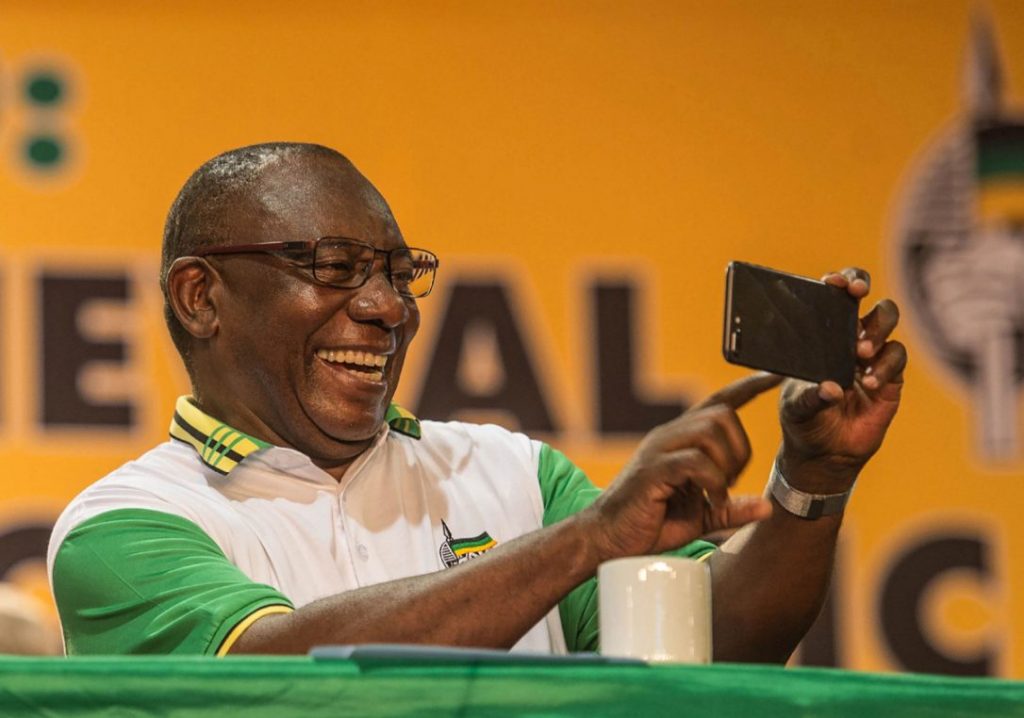The election of Cyril Ramaphosa as Leader of South Africa’s ruling African National Congress (ANC) has thrown him up as the country’s next president if ANC wins the 2019 general elections.
The 65-year-old Ramaphosa, who was the country’s deputy president in 2014, defeated Nkosazana Dlamini-Zuma in the race to replace South African President Jacob Zuma as the head of the party.
Of the over 4,800 delegates who voted in the congress, tainted by allegations of vote-buying and rigging, 2,440 voted for the 65-year-old businessman to edge out his closest rival, Nkosazana Dlamini-Zuma, 68, an ex-wife of incumbent, Jacob Zuma.
Mr. Ramaphosa had campaigned on increasing investment in the country and growing the country’s economy. He is the favourite of urbane, middle-class members of the party.
He was born in 1952 in Soweto, a township southwest of the Johannesburg city centre, and went on to study law at the University of the North at Turfloop.
He subsequently joined students’ politics and served as the branch leader of the South African Students’ Association.
Ramaphosa was detained on a series of occasions due to his activism and finally finished his law degree through correspondence via the University of South Africa.
In the 1980s, he became an active member of the National Union of Mineworkers, serving as its general secretary for nine years.
Ramaphosa was elected general secretary of the ANC in 1991, and in the years that followed was a key negotiator on behalf of the party during South Africa’s transition to democracy.
After the country’s first democratic elections in 1994, he became a member of parliament and helped to write and review the post-apartheid constitution.
He was also considered as a potential deputy of Nelson Mandela, South Africa’s first black president, but lost that position to Thabo Mbeki, who became president of the country in 1999.
Ramaphosa was involved in Black Economic Empowerment ventures in business, especially mining and farming, and is today one of South Africa’s wealthiest people.
However, his reputation has been dented in recent years, mainly over his connection to the Marikana massacre in 2012, when 34 striking miners were shot dead by police.
At the time, Ramaphosa – who was a shareholder and director at Lonmin, the company that owned the platinum mine – had called for stronger police action against the miners.
A commission of inquiry cleared him, but the accusations continue to haunt him, with activists and the Economic Freedom Fighters opposition party routinely blaming him over Marikana.
Earlier this year, Ramaphosa had apologised for his use of language at the time, but maintained he had to intervene to help reduce the loss of lives.
Meanwhile, South Africa’s president has called for unity in the governing African National Congress, as it prepares to select a new leader.
Jacob Zuma, who’s facing corruption allegations, is stepping down as head of the party before a successor is elected on Sunday.
Other newly-elelcted members of the party’s top echelon, Top Six, as they are called are: Deputy President: David Mabuza; Chairperson: Gwede Mantashe; Secretary General: Ace Magashule; Deputy Secretary General: Jessie Duarte; and Treasurer General: Paul Mashatile.
The ANC has finished first in every national vote since the end of white-minority rule in 1994.

